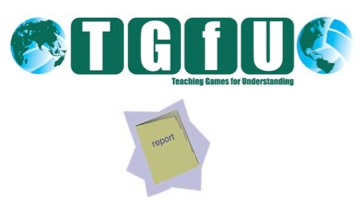A comparison of the effectiveness of two approaches to teaching games
Allison, S., & Thorpe, R. (1997). A comparison of the effectiveness of two approaches to teaching games within physical education. A skills approach versus a games for understanding approach. British Journal of Physical Education, 28(3), 9-13.Since the popularity of the Teaching Games For Understanding (TGfU) model has grown, there is a need to assess its effectiveness in teaching students to play games. Thus, the purpose of this study by Allison and Thorpe (1997) was to compare the effectiveness of the skill approach with that of the TGfU approach for a variety of factors; a) for the pupil these included enjoyment, the development of skill and tactical understanding and in involvement in planning and evaluation, b) for the teacher, the opportunities to observe and assess pupils.
Participants were 40 year nine boys and 56 year eight girls from one secondary school in Lincolnshire, UK. These pupils were randomly assigned to one of two treatments, a) skill-based teaching and b) TGfU. The research lasted 12 weeks, with a three week pre-test period, followed by six, one hour per week teaching sessions, and a three week post-test period. Participants were tested on a) the AAPHERD basketball skill tests (passing and shooting accuracy) and the Henry-Friedel Field Hockey Test for field hockey (shooting accuracy and speed), b) a knowledge and understanding test, and c) an affective domain questionnaire. Post lesson assessments were also made each lesson for the factors of enjoyment, effort, and planning and evaluation opportunities. Teachers completed post-lesson questionnaires at the end of each teaching sessions to assess pupil effort, pupil involvement in planning and evaluation, and teacher enjoyment of the teaching approach. Measures were analyzed using descriptive statistics (percentage improvement). For skill development results showed that the TGfU groups improved more than the skill-based groups in all areas. Tactical knowledge and understanding improved more with the TGFU groups. Pupils in the TGfU groups also showed greater appreciation of when to pass/shoot and dribble, factors influencing decision-making and skill execution and supported team-mates better. Both pupils and teachers felt that the pupils were more involved in planning and evaluation during the TGfU lessons, and teachers felt they had more opportunities to observe and assess pupils when using TGfU. Finally, authors felt the TGfU approach had more to offer the less able pupils. Findings from this article demonstrate that TGfU does not hamper development in skill levels, whilst at the same time helps develop pupil’s game understanding. Thus, when an effective learning environment is created pupils learn. Review completed by Dr. Stephen Harvey, Senior Lecturer in Physical Education and Sport, University of Bedfordshire, UK. |



